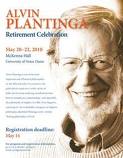Sponsored Links
Atheistic-naturalistic-materialistic worldview: tenable?
 © 2011 by Jensen dG. Mañebog
© 2011 by Jensen dG. Mañebog
‘Richness’ of life in atheistic-naturalistic-materialistic worldview: superficial
Dawkins nonetheless has not explained throughout his thick book how one can be happy, balanced, moral, and intellectually fulfilled by embracing his worldview. He merely says that that is the first of his consciousness-raising messages [116]. But such a message appears to be not a consciousness-raising at all when one realizes that “happiness” is not what he really feels when he sees the suffering in this world day by day while subscribing to Dawkins’ worldview that it is all for naught [117]. As illness and death reap havoc among friends and relatives while a person has no hope or faith to cushion the blows, we wonder how he can be genuinely happy. [118]
Regarding being“balanced,” we wonder how many people can be balanced by embracing the belief that life is short, life just ends here, and that death is merely a return to non-life state. As one scholar comments, “Why be balanced, if you could die at any time? Why not “eat and be merry” instead?” [119]
As for being “intellectually fulfilled,” we once again wonder how fulfilling it is to believe that all the knowledge we attain and all “human thoughts” are mere “interconnections of physical entities within the brain,” [120] or perhaps some form of chemical reactions in our head. Thus, we also wonder how based on this definition of human thought Dawkins can support his consistent egotism that atheists are intellectually superior and everybody else is blind, stupid or close-minded [121].
As happiness, being balanced, and being intellectually fulfilled in Dawkins’ worldview are only superficial, the practicality of his worldview is thus also artificial…
Ironies and inconsistencies in upholding this worldview
 It’s unimaginable to live up to what materialism and naturalism dictate without engaging oneself in ironies and inconsistencies. The founding president of the American Philosophical Practitioners Association Lou Marinoff explains the inevitability of accepting the non-material aspects of the world:
It’s unimaginable to live up to what materialism and naturalism dictate without engaging oneself in ironies and inconsistencies. The founding president of the American Philosophical Practitioners Association Lou Marinoff explains the inevitability of accepting the non-material aspects of the world:
“Even hard-boiled materialists are bound to acknowledge the existence and influence of nonmaterial things. Gravitational and magnetic fields, for example, are nonmaterial things that exert forces and store energies. Light, too, is composed of nonmaterial bundles of energy. Without gravity there would be no atmosphere; without magnetism, no biochemical ions; without light, no way for plants to photosynthesize. Thus life itself depends on forces and energies of nonmaterial kinds. If this is true for plants, how much truer is it for conscious beings like humans? Life and consciousness have undeniable spiritual (that is, nonmaterial) aspects. Your thoughts themselves are nonmaterial…” [122]
Dismissing the real existence of spirit, materialists contend that what is called as spirit is nothing but “a figment of the imagination (the brain again), and that spiritualism arises from a forlorn hope that there is more to the world, life, and consciousness than mere matter in motion” [127] . But granting that for the sake of argument, then, as Marinoff reflectively comments, “It is equally possible that materialistic denials of the special significance of existence, life, mind, and spirit are themselves wishful thinking, hallucinations, or figments of the imagination” [128]. Hence, as his conclusion concerning materialistic views Marinoff says:
“…How does something come from nothing? How do living organisms arise from dead matter? How is consciousness produced from brains? How are experiences of pure light, divine music, perfect love, boundless grace, and cosmic consciousness dismissed as wishful thinking, hallucinations, or figments of the imagination? … other experts know that these materialistic views are beliefs, not explanations.” [129] (emphasis added)
Leaps of faith
 Of late, a number of scientists and philosophers have proposed a new version of theism’s argument from design which is now known as “Fine-Tuning Argument”. Alvin Plantinga explains the history of the argument:
Of late, a number of scientists and philosophers have proposed a new version of theism’s argument from design which is now known as “Fine-Tuning Argument”. Alvin Plantinga explains the history of the argument:
“… astrophysicists and others noted that several of the basic physical constants must fall within very narrow limits if there is to be the development of intelligent life—at any rate in a way anything like the way in which we think it actually happened. For example … the weak and strong nuclear forces; if either had been even slightly different, life, at any rate life of the sort we have, could probably not have developed. Equally interesting in this connection is the so-called flatness problem: the existence of life also seems to depend very delicately upon the rate at which the universe is expanding …" [144]
To these remarkable enormous ‘coincidences’, one response is to view them as corroborating theism that the universe has been created by an Omniscient God. In the words of the Director of the U.S. National Human Genome Research Institute since 1993, Francis Collins:
 “The gravitational constant, if it were off by one part in a hundred million million, then the expansion of the universe after the Big Bang would not have occurred in the fashion that was necessary for life to occur. When you look at that evidence, it is very difficult to adopt the view that this was just chance. But if you are willing to consider the possibility of a designer, this becomes a rather plausible explanation for what is otherwise and exceedingly improbable event—namely, our existence.” [145]
“The gravitational constant, if it were off by one part in a hundred million million, then the expansion of the universe after the Big Bang would not have occurred in the fashion that was necessary for life to occur. When you look at that evidence, it is very difficult to adopt the view that this was just chance. But if you are willing to consider the possibility of a designer, this becomes a rather plausible explanation for what is otherwise and exceedingly improbable event—namely, our existence.” [145]
As a reaction to this argument, Dawkins proposes another theory which he calls the multiverse. In a debate with Collins, he answers,
“… the multiverse way. That says that maybe the universe we are in is one of a very large number of universes. The vast majority will not contain life because they have the wrong gravitational constant or the wrong this constant or that constant. But as the number of universes climbs, the odds mount that a tiny minority of universes will have the right fine-tuning.” [146]
In other words, given that there are so many many universes, it is argued that it is likely that some of them would display values that are life-friendly and it's not at all improbable that some of them should be "fine-tuned."…
Now, here’s the point. Considering that the alleged other so-many universes are not observable even in principle and admitting that an ultimate origin of the universe still awaits an explanation [149], is it not a “leap of faith” again that Dawkins openly advocate ‘the multiverse theory’?...
Hence, when it’s Collins’ turn to comment on Dawkins’ multiverse proposal, the genome pioneer who headed a multinational team of 2,400 scientists that mapped the 3 billion biochemical letters of our genetic blue print simply utters:
“I actually find the argument of the existence of a God who did the planning more compelling than the bubbling of all these multiverses. So Occam’s razor--Occam says you should choose the explanation that is most simple and straightforward—leads me more to believe in God than in the multiverse, which seems quite a stretch of the imagination.” [152]
Can’t truly account for morality
As regards Dawkins’ claim that atheist can be moral, expert in Ethics M. Caputo particularly asks Dawkins the following questions many of which are rhetorical:
“‘Moral?’ Which morality, Richard? You and I know that when there is no “fixed” moral code to be guided by, what follows is a self-chosen, “flexible” morality that one can “adjust” at will. After all, who is to decide what is right and wrong, if no Higher Power is there to determine it? And if one is tempted to “cheat” on his moral code, who will be there to stop him? Who will he answer to? Will he need to worry about guilt? How? His conscience has been silenced by his subjective determination of right and wrong. What guilt?” [156]
Ethicist P. M. Doyle further clarifies the inconsistency of welcoming morality in atheistic-naturalistic-materialistic worldview. About atheists’ recognition of the notions of “good” and “bad”, he says:
“Why work oneself up into a lather over things which – according to a purely materialistic outlook – are nonsensical ideas… ? That's not necessarily to suggest that there is anything more than matter, nor am I trying to discourage atheists from being good etc. But the question remains. Within Dawkins’ framework, terms such as “good” and “bad” aren't just different or a tad shallower than otherwise; they are rendered completely unrecognizable. In fact, it is downright weird to read Dawkins’ beliefs about such concepts. [157]
The compassionate tear and self-sacrifice
 To further stress our point here, let’s take the case of a “compassionate tear” which moral beings from time to time shed upon seeing a deplorable condition. In Dawkins’ perspective, a compassionate tear, more or less, would be nothing but, “a randomly programmed conflux of atoms” [158]. But looking at it this way, or in any possible way a materialist would consider it, it’s clear that the said tear’s authenticity dissipates completely. Dawkins worldview can’t help but remove the “compassionate” element in a “compassionate tear”-- that there will be no difference at all, in that perspective, between such a tear and that of an actor for example who is paid to produce the “chemical composition” called tear. Hence, ironic and absurd it is that Dawkins even has the guts to say, “Do not, for one moment, think of such Darwinizing as demeaning or reductive of the noble emotions of compassion and generosity.” [159]
To further stress our point here, let’s take the case of a “compassionate tear” which moral beings from time to time shed upon seeing a deplorable condition. In Dawkins’ perspective, a compassionate tear, more or less, would be nothing but, “a randomly programmed conflux of atoms” [158]. But looking at it this way, or in any possible way a materialist would consider it, it’s clear that the said tear’s authenticity dissipates completely. Dawkins worldview can’t help but remove the “compassionate” element in a “compassionate tear”-- that there will be no difference at all, in that perspective, between such a tear and that of an actor for example who is paid to produce the “chemical composition” called tear. Hence, ironic and absurd it is that Dawkins even has the guts to say, “Do not, for one moment, think of such Darwinizing as demeaning or reductive of the noble emotions of compassion and generosity.” [159]
And the same applies to acts of self-sacrifice. Contemporary author William Lane Craig reports a case of self-sacrifice in an accident some years ago:
 “A number of years ago, a terrible mid-winter air disaster occurred in which a plane leaving the Washington, D.C. airport smashed into a bridge spanning the Potomac River, plunging its passengers into the icy waters. As the rescue helicopters came, attention was focused on one man who again and again pushed the dangling rope ladder to other passengers rather than be pulled to safety himself. Six times he passed the ladder by. When they came again, he was gone. He had freely given his life that others might live. The nation turned its eyes to this man in respect and admiration for the selfless and good act he had performed.” [160]
“A number of years ago, a terrible mid-winter air disaster occurred in which a plane leaving the Washington, D.C. airport smashed into a bridge spanning the Potomac River, plunging its passengers into the icy waters. As the rescue helicopters came, attention was focused on one man who again and again pushed the dangling rope ladder to other passengers rather than be pulled to safety himself. Six times he passed the ladder by. When they came again, he was gone. He had freely given his life that others might live. The nation turned its eyes to this man in respect and admiration for the selfless and good act he had performed.” [160]
Indeed, what the man did is unquestionably heroic. And yet, if the atheist is right, that man was not noble—he did the stupidest thing possible. He should have gone for the ladder first, pushed others away if necessary in order to survive. But to die for other he did not even know, to give up all the brief existence he would ever have—what for? For the atheist there can be no reason. And yet the atheist, like the rest of us, instinctively reacts with praise for this man’s selfless action. Indeed, “one will probably never find an atheist who lives consistently with his system. For a universe without moral accountability and devoid of value is unimaginably terrible.” [161]
Finally, in criticizing religions in their moral stands, given his (Dawkins) definition of “human thoughts” as mere “interconnections of physical entities within the brain” [162], we ask rhetorically again, “how on earth has he convinced himself that the random, accidental chemical movements of his brain are more reliable or “rational” than the theist’s?”
Therefore, to Dawkins’ worldview appropriately applies the classic argument of the famous C.S. Lewis which deserves to be quoted here in full:
Darwinist-evolutionist worldview: some defects




